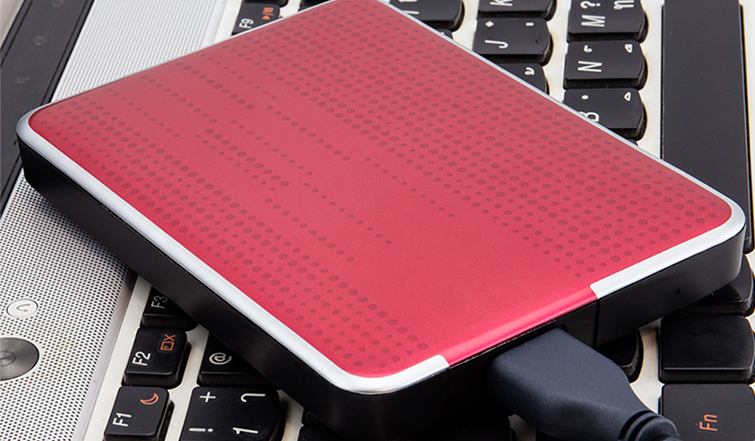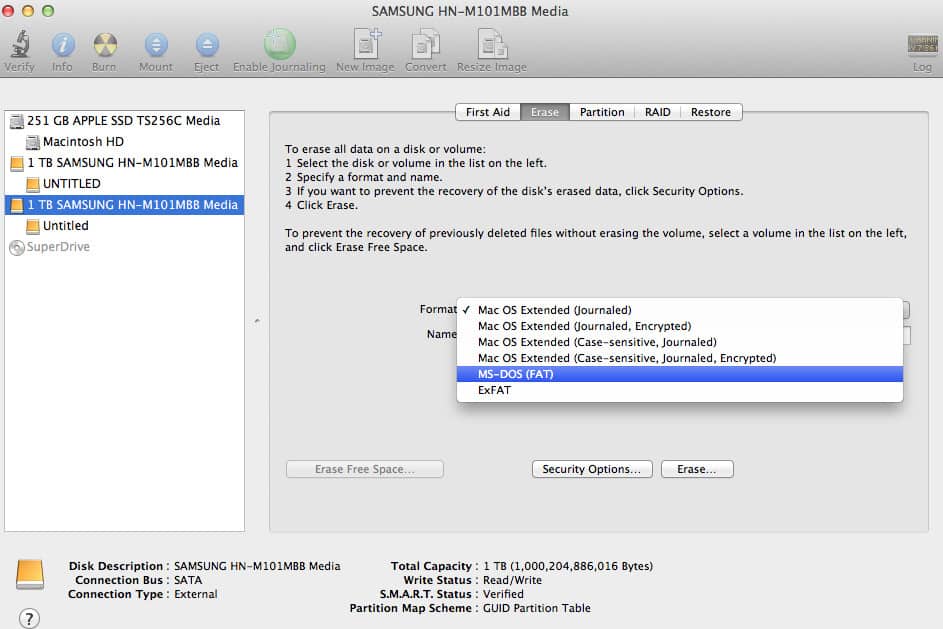

- #FORMAT EXTERNAL STORAGE DRIVE FOR MAC PORTABLE#
- #FORMAT EXTERNAL STORAGE DRIVE FOR MAC MAC#
- #FORMAT EXTERNAL STORAGE DRIVE FOR MAC WINDOWS#
Make sure to leave plenty of room for future backups on both partitions. Now your computer will see your single drive as multiple, smaller drives.
First, partition the drive using Disk Utility with macOS, and (using our walkthrough below) format one part as HFS+ and the other as FAT32 then, plug the drive into Windows and reformat the FAT32 portion as NTFS.
If you want to use a single external hard drive to back up both File History and Time Machine, you can partition it so that some of the drive is NTFS and some is HFS+. exFAT works on both macOS and Windows, and it doesn’t have the file size limit that FAT32 does, so you’ll be able to back up movies and other large files. If you need to transfer files larger than 4 GB between Mac and Windows computers, exFAT (extended File Allocation Table) is the best option, although it doesn’t work with File History or Time Machine. Unfortunately, it isn’t any good for storing movies and other large files: FAT32 has a size limit of 4 GB per file, so your files have to be small. FAT32 was introduced in Windows 95 in 1997, but it remains useful because nearly every system can use it. FAT32 (File Allocation Table 32) is an older file system that both Windows machines and Macs still support. Like NTFS, the HFS+ file system has file and partition size limits that are much bigger and more suitable for modern use than those of FAT32. A drive formatted this way will not mount on a Windows computer without additional software. If you plan to use your drive for Time Machine backups on a Mac, and you use only macOS, use HFS+ (Hierarchical File System Plus, or macOS Extended). Many backup archives and video files are larger than 4 GB. NTFS has huge file and partition size limits that you won’t hit that makes it a better choice than FAT32, which has a 4 GB size limit per file. 
macOS and Linux, however, can only read files stored on such a drive they cannot write to an NTFS-formatted drive. NTFS is native to Windows, and most hard drives are preformatted for this file system.
If you plan to use your drive for File History backups on a Windows computer, and you use only Windows, stick to NTFS (New Technology File System). So what do those four file systems mean, and which one is right for you? Non-Linux computers can use four main file systems: NTFS, HFS+, FAT32, and exFAT. If you use a Mac, the likelihood that you’ll have to reformat the drive is higher. If you use Windows, chances are good that you won’t need to reformat your external hard drive-unless you buy it secondhand, or you plan on switching between operating systems, your drive should come ready to use. If you buy an external drive-such as one of our recommended desktop hard drives, portable hard drives, or USB 3.0 flash drives-you may need to reformat it to work with your operating system of choice, since different operating systems use different file systems to process data.Īlthough it’s true that any drive is compatible with both Windows and macOS, most drives come preformatted for Windows out of the box.






 0 kommentar(er)
0 kommentar(er)
